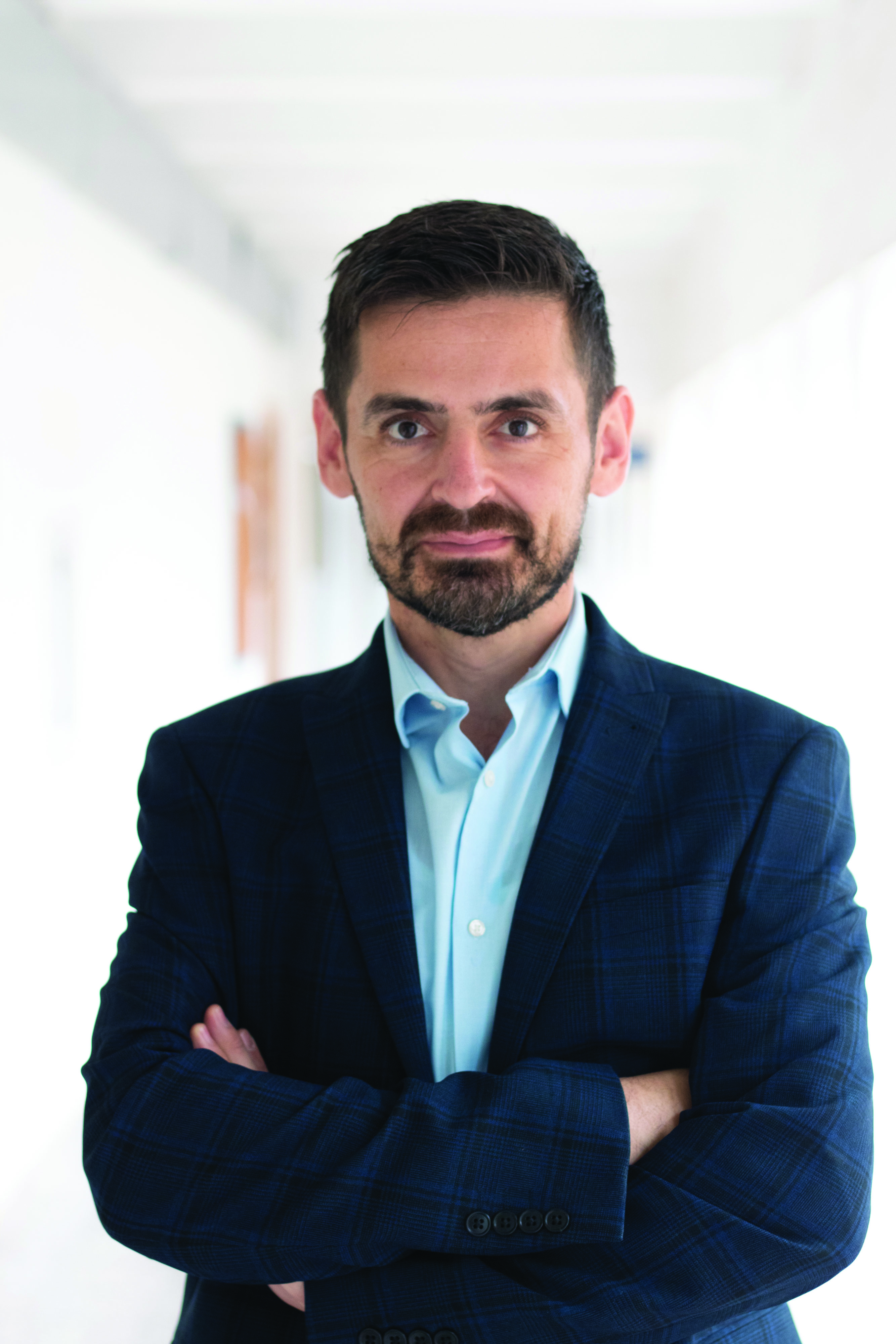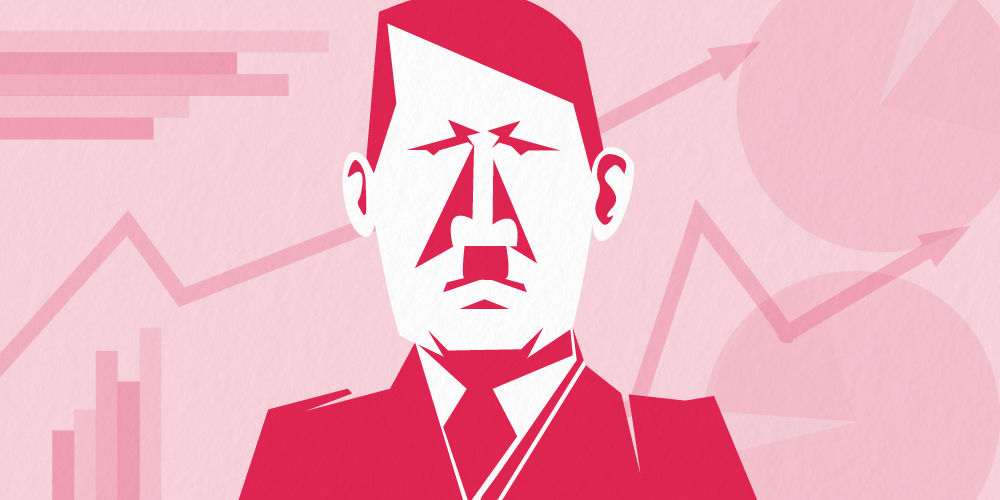What is it about a story that can make us so invested? Antónia Ribeiro muses over marketing, emotions, and Nazis under the light of Dr Mario Cassar’s research in storytelling.
Hitler’s Fairy Tales
When in 1933 Hitler took his place as the head of Nazi Germany, the stage was set for one of the darkest periods in Western civilization’s history.
Hitler had a clear goal: expand the greatness of Germany by conquering new territory. Ostracized – dare we say, humiliated – by the Allied forces after World War I and left in economic shambles, Germany was the outcast with a bone to pick. Hitler fed the population’s resentment and fear, promising the reestablishment of the once-great Germany (does ‘Make Germany Great Again’ sound familiar to anyone?). His goal was territorial expansion, and the only way to achieve it was through invasion.
To legitimise his pursuit, Hitler created a scapegoat. The Jews, Slavs, homosexuals, and Jehovah’s Witnesses, painting them as the precursors of the entire country’s misery. By demonising the ‘undesirable’ minorities and fuelling feelings of otherness and discrimination, Hitler laid the foundation for inhumane acts.
It’s a cunning strategy, honed through history, and still employed today by extremist political parties. With modern values and knowledge, we may think of Hitler as a monster, manipulator, or abuser. But one word that may not come as easily to mind is ‘marketer’.
Stripped to his bare bones, Hitler (with the aid of his Minister of Propaganda, Joseph Goebbels) was a masterful storyteller, capable of spinning a tale that pulled the country’s heartstrings. Even if for nefarious purposes, his masterfully woven ideals convinced the population and unified Germany in the pursuit of a common goal.
Storytelling, a Jack of all trades
Storytelling is an approach applied to all kinds of communications, such as fiction, scientific writing, teaching, public speaking, and marketing. Referring either to the structural organisation or the underlying narrative, the technique captures attention, boosts the reader’s focus, and helps assimilate and memorise new information. But it can be difficult to guess the purpose lurking beneath the story. In his book, Mein Kampf, Hitler reinforced the population’s insecurities while hiding his true motif.

At the University of Malta, the Deputy Director of the Marketing, Communications and Alumni Office, Dr Mario Cassar, is well aware of the usefulness of storytelling; he has a whole PhD thesis on the subject. By evaluating the persuasiveness of this technique, he clarifies how stories can be channeled in marketing and help the University of Malta.
Cassar describes storytelling as ‘the brain currency to store information,’ since our brain stores and retrieves information as episodes (be it stories, experiences, or incidents). Online reviews of products are highly persuasive in marketing due to their ‘story-like structure.’ This narrative approach is also thoroughly used in brand marketing while constructing an identity. We relate to, and ultimately consume, brands that we identify with. This connection is crafted through stories that also push people to action.
In his thesis, Cassar questions how storytelling compares to factual information. He directs these assessments on persuasive power towards university marketing. He wonders what spikes more interest: detailed information on the available courses at a university or testimonials on the ‘college experience.’
Emotion over Logic
We like to think of ourselves as rational beings, capable of making decisions based on the logical analysis of the data available to us. Yet, humans take decisions based on emotions. We choose sides not by their empirical value but according to how they make us feel. And stories are a powerful way to pass on emotion. Our brains are literally hardwired to focus and retain more information when it is conveyed as a quirky tale.
What is it about stories that keep us so enthralled? The answer may be in our past. Stories were one of the main ways our ancestors communicated where the dangers lay. In a time when there were no written textbooks on survival, much less Bear Grylls’ ‘resourcefulness’ on TV, stories were a memorable way to pass on information. Similarly, we have been taught how to navigate society through fairy tales and fables.
Even though storytelling triggers emotive responses, it seems that narratives fuelled by anger tend to deviate from this method, according to Cassar’s study. Online reviews become more argumentative when the opinion is negative. And yet, these negative reviews seem to be more persuasive. These results suggest that what we feel about a product affects the perceived credibility of our opinion. We are more convincing when we are angry.
What about the length of the description? Cassar’s research suggests that the most persuasive reviews are short and narrative. A short technical review will not convince the sceptics. This means that, independently of someone’s knowledge of the product they are buying, stories are more appealing than technical details.
In the same way, testimonials of the university experience on a website were more interesting than technical ones. Narrative ads increased the interest rate by 45% comparatived to descriptive ones. This increase in perceived interest often correlates with increased purchase intention of students looking for a course.
“Ceci n’est pas une pipe”
It turns out that storytelling is exceptionally good at capturing our attention, and it is also very persuasive. The German Nazi regime used the method to manipulate the population. Nike uses it to inspire us to be the best version of ourselves (even if it implies that the right way to do that is with their products). Even Christmas marketing campaigns take advantage of the emotive power of storytelling every year.
Marketing is a tool that can be employed to positively influence our views of the world. But as any tool, it can be misused.
This article does not want to imply that marketing is analogous to a fascist regime. Marketing is a tool that can be employed to positively influence our views of the world. But as any tool, it can be misused. Just as companies shouldn’t spread misinformation, customers need to become savvy. As consumers, we need to learn the patterns and how to critically evaluate the messages that are being fed to us.
A Tale to Rule them All
Cassar’s research shows how storytelling can affect emotions, attitudes, and behaviours. There is a big difference between the marketing of tertiary education and the propaganda that fascist regimes of the 20th century used. Yet marketing can influence the very core of society. In Cassar’s words, ‘Marketing is an organised way to persuade people.’ To him, more than storytellers, marketers are observers of their culture and social environment.
For its wide range and keen understanding of the social-political context, Hitler’s mastery of storytelling may be the harrowing proof of the persuasive power of a well-crafted tale.
Further Reading:
The National WWII Museum | New Orleans, (2021). How Did Hitler Happen?, The National WWII Museum | New Orleans. [online] Available at: <https://www.nationalww2museum.org/war/articles/how-did-hitler-happen#:~:text=Adolf%20Hitler%20was%20appointed%20chancellor,by%20suicide%20in%20April%201945> [Accessed 11 February 2021].
Crossfield, J. (2021). The Neuroscience of Storytelling – Content Marketing Institute. [online] Content Marketing Institute. Available at: <https://contentmarketinginstitute.com/cco-digital/april-2019/storytelling-neuroscience-joe-lazauskas/#:~:text=So%2C%20when%20we’re%20hearing,the%20information%20we’re%20getting.&text=Paul%20Zak%2C%20is%20that%20stories,and%20they%20make%20us%20care> [Accessed 11 February 2021].
Zaelzer, C. (2020). The Value in Science-Art Partnerships for Science Education and Science Communication. Eneuro, 7(4), ENEURO.0238-20.2020. https://doi.org/10.1523/eneuro.0238-20.2020
Ellis, C. (2021). Why emotion plays a critical role in decision making. The Drum. Retrieved 15 February 2021, from https://www.thedrum.com/news/2019/01/30/why-emotion-plays-critical-role-decision-making.






Comments are closed for this article!